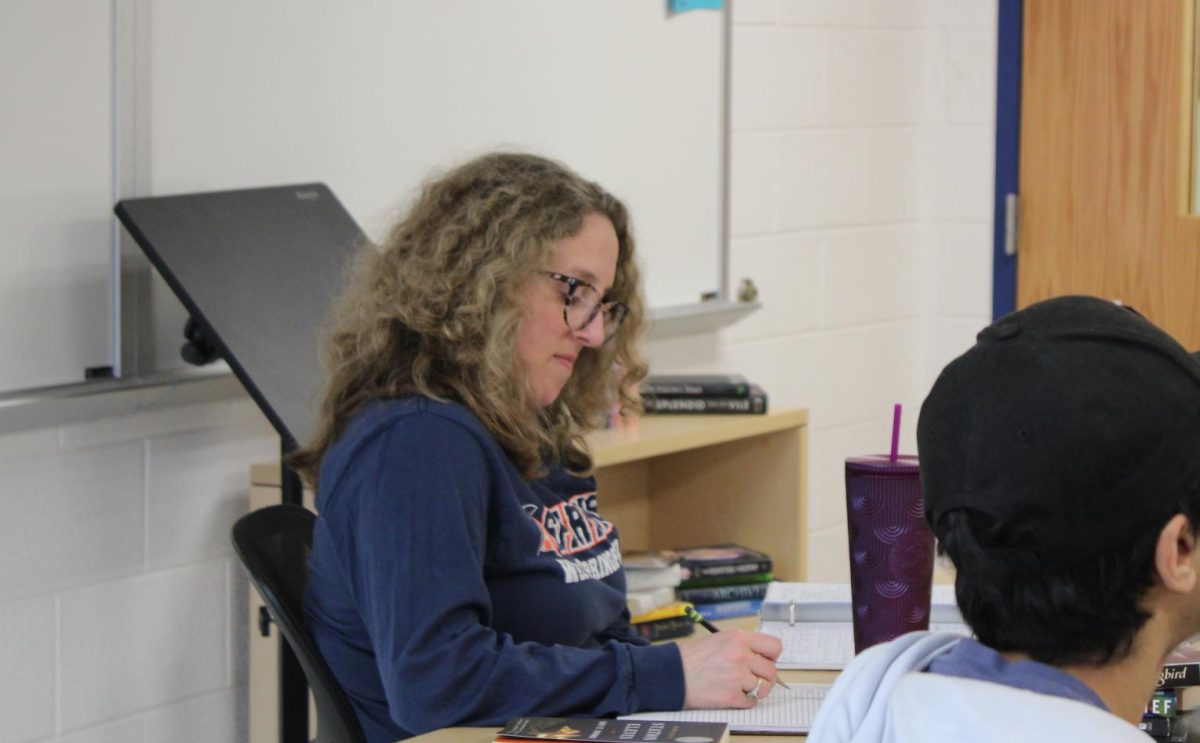Huge college debt. Bankruptcy. Identity theft. Such ideas can be a sobering reality for the young, financially illiterate high school graduate.
That is why Esther Pincus and Sarah Vink, from the counseling office, and Brian Stagliano, who teaches Economics and Personal Finance, collaborated to hold a Financial Literacy Student Seminar last Wednesday, December 15.
The seminar, presented by Stagliano, covered money-related issues such as banking, budgeting, credit, and scams. The object was to give students a basic understanding on how to manage their money in high school and in the future.
“It’s important for everyone to have a general knowledge of these concepts before going into college and into the workforce,” said Stagliano.
The school has been holding the seminar for three years. In the past, it was only as part of the College Partnership Program students, to prepare people able to go into college, but this time they decided to invite students of all ages, because even in high school people can open their own bank accounts, get jobs, and fall for scams.
“If a student doesn’t know not to give out their social security number, or click on an email, they’re putting themselves at risk,” said Stagliano.
Stagliano explained, to the twelve people who attended, all kinds of different scams people often fall victim to, such as when he got an email from a sender “eby.com” asking for his private information. He warned never to give information in response to an email, or even click on it, because some programs can log your keystrokes.
“The section on the scams was important, so you don’t make mistakes and let other people take advantage of you,” said freshman Jake Israel, who attended.
Stagliano also covered the meaning and importance of credit rating, encouraged having a cash cushion when budgeting, and different ways to invest. He used real-world scenarios and stories from his own life as examples.
“From when I was in high school to today, the biggest decisions I’ve made were financial decisions. They’re huge decisions,” said Stagliano.
Although Stagliano considers the presentation a success, he wishes he had more time, and would prefer to split the seminar across two Spartan Time sessions. It was evident that the organizers of the event planned for much more than the twelve attendees, perhaps because in last year’s needs assessment students expressed a high interest in more financial education.
“For advertising it to the whole school, I was a little disappointed [by the turnout] because it’s such an important topic,” said Stagliano.
It is a little worrisome that the school seems uninterested in learning about such practical and necessary real-world skills as managing your money and protecting yourself.
The average college debt was $29,000 in 2009, and too many people graduate from college without any idea of how to use their credit card or manage their budget.
“It’s important to know these things so things you do in the past don’t affect the future,” said Israel.






